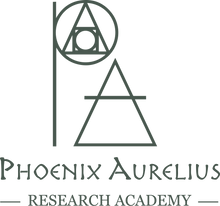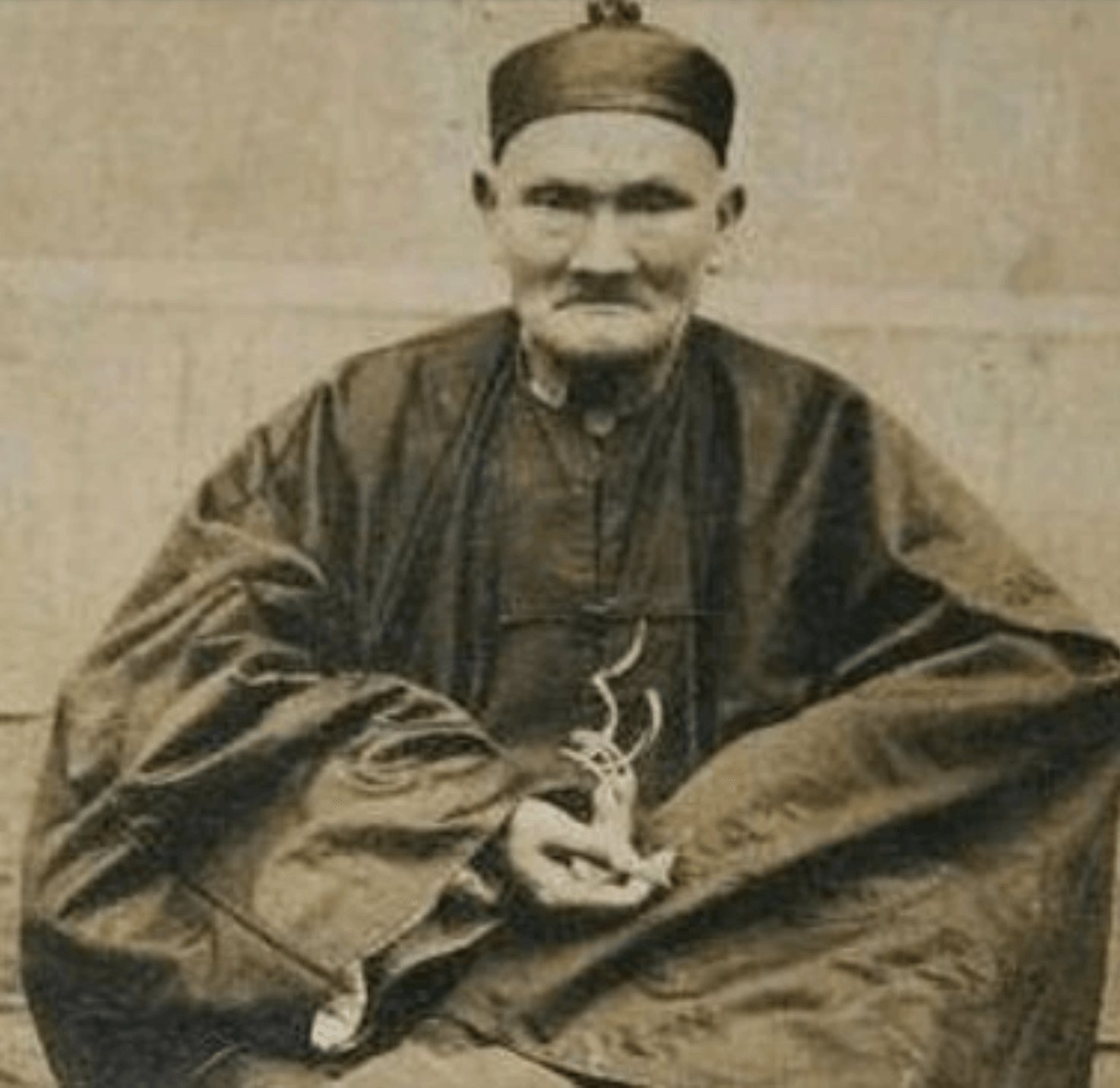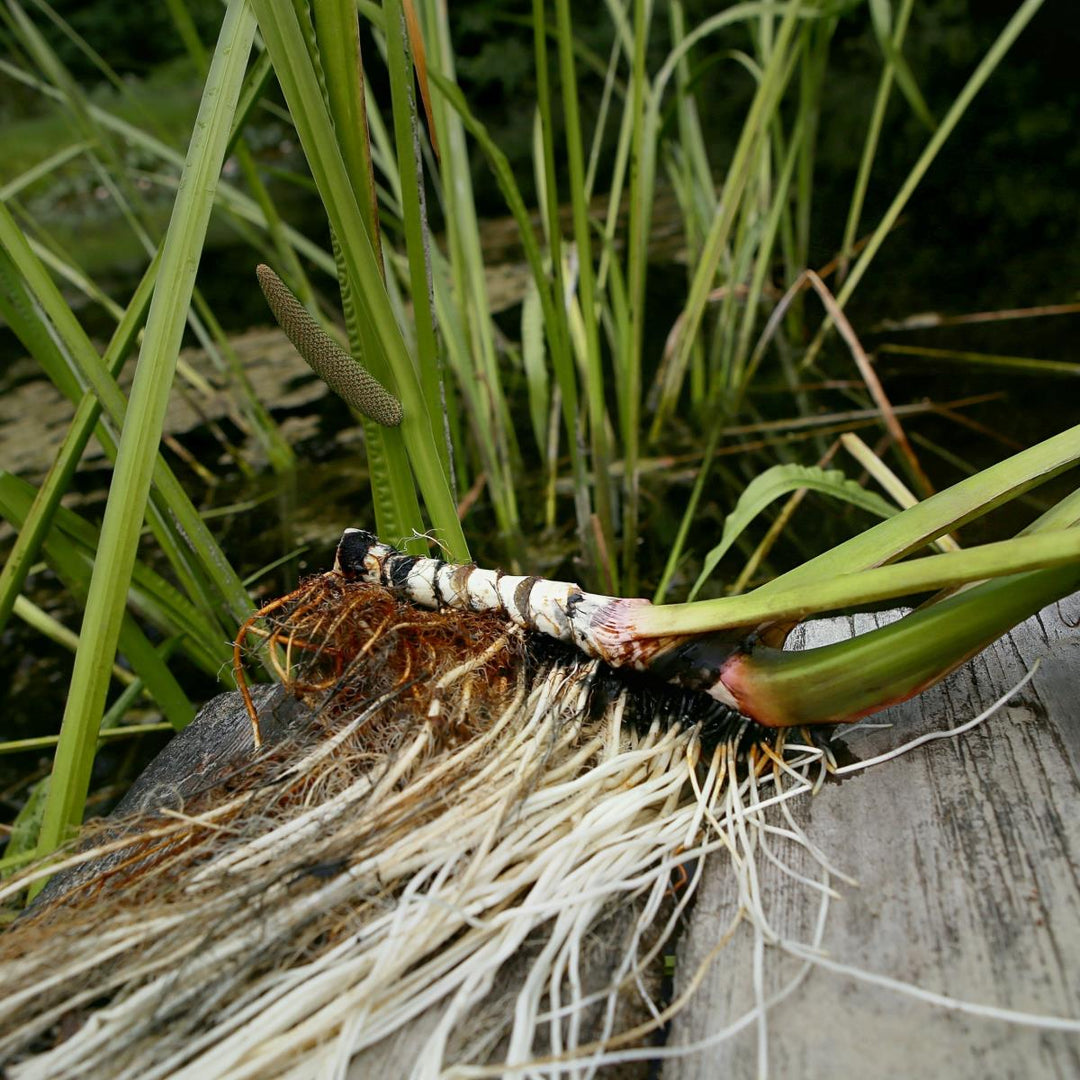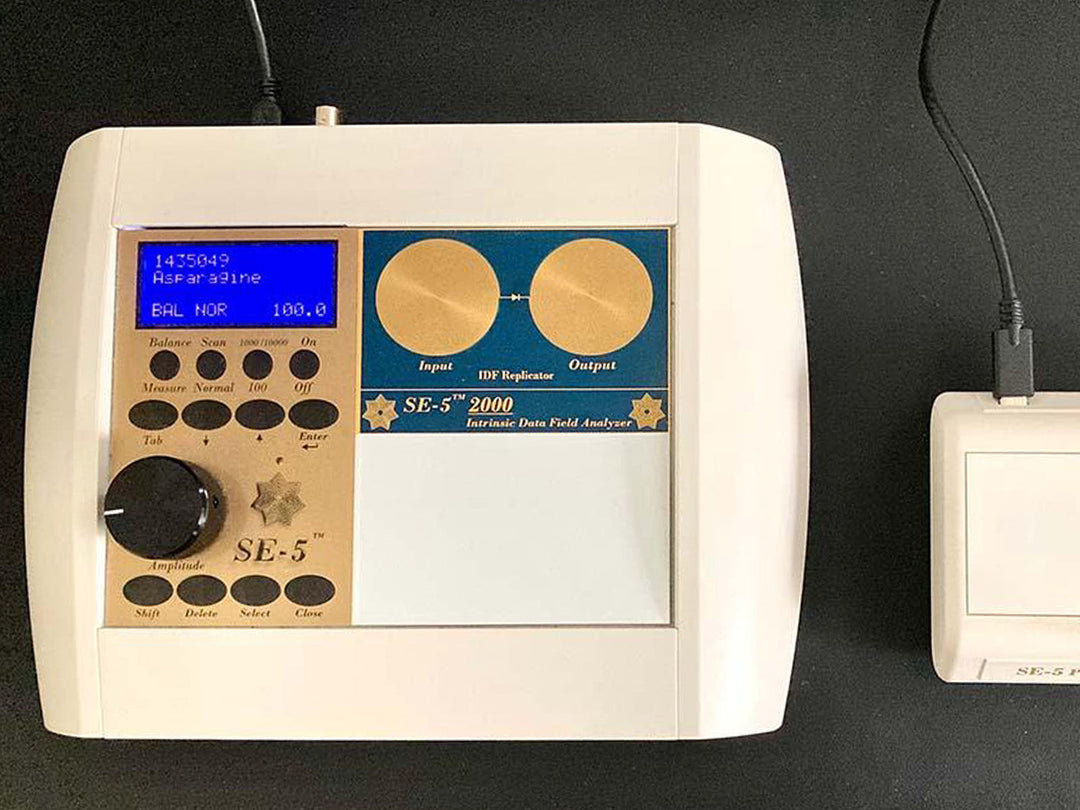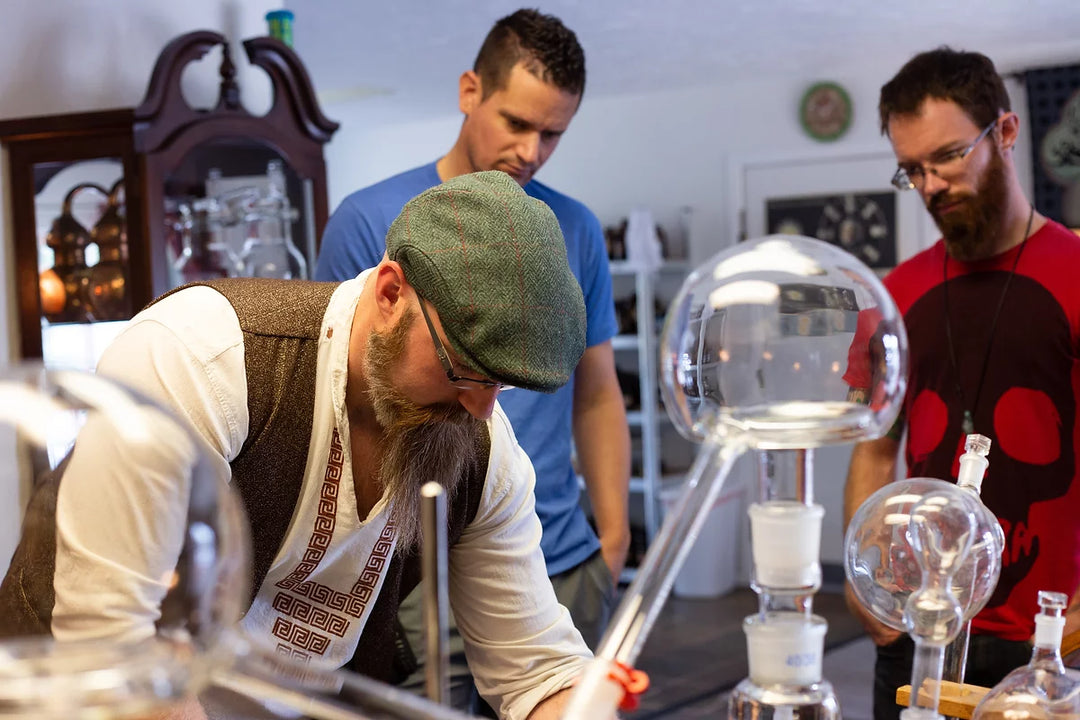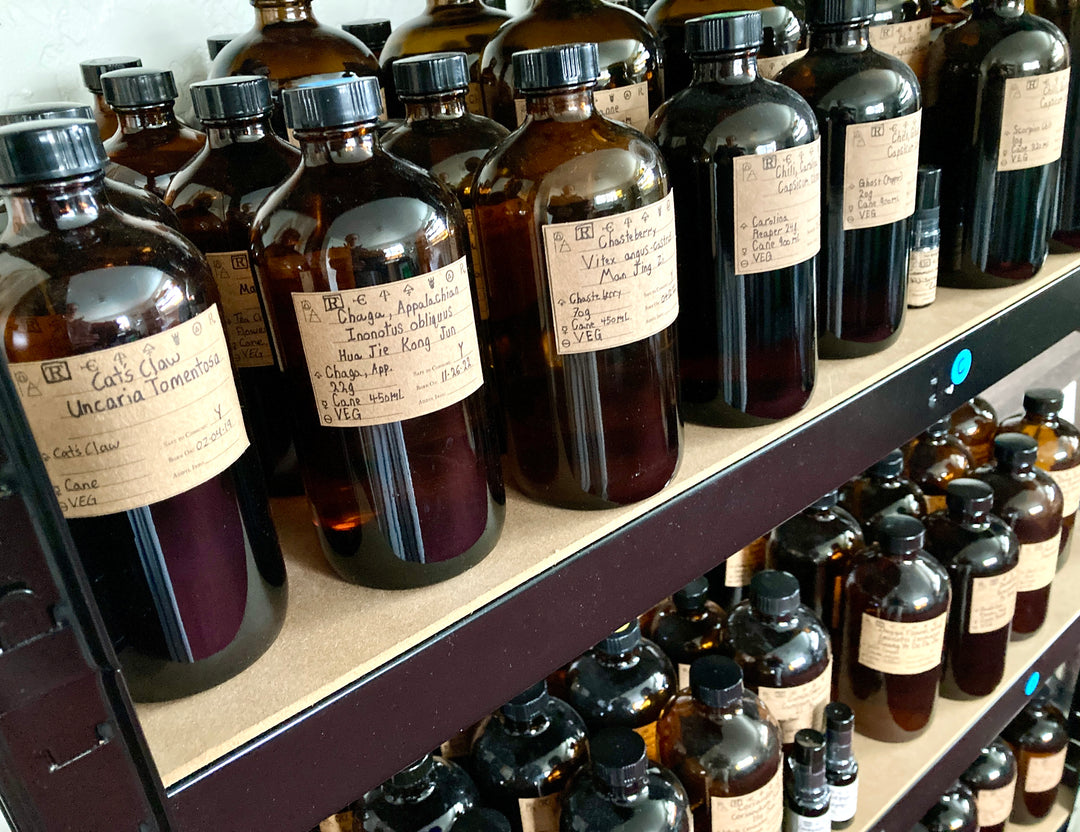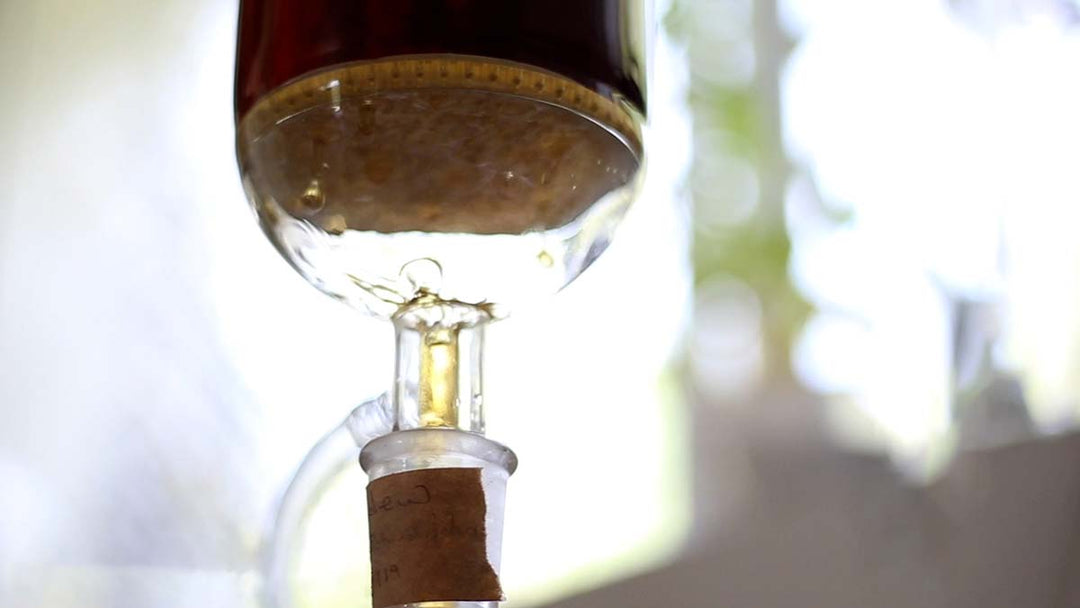
He Shou Wu (Polygonum multiflorum) is a climbing vine plant also sometimes called climbing knotweed. It is native to China but is also found in Japan and Taiwan. Commonly known as Fo-Ti [its Japanese name] in North America, its Chinese name is He Shou Wu and has long been used in Traditional Chinese Medicine.
Based off ancient Taoist texts, an "old man" discovered this vine in 812 AD. The legendary tale related to it in the Taoist texts goes something as follows: The discovery of He Shou Wu began when a weak, frail man fell asleep in the forest after a heavy night of drinking. When he awoke, he saw exceptionally long He Shou Wu vines intertwining together as if making love. Seeing this, the plant struck a chord in him. Curious about the properties of this plant, he proceeded to dig up the roots so he could bring it into the village to inquire further about it. Yet, no one was familiar with the plant. A local Hermit, hearing about this, suggested to the old man to ingest the roots himself to see what the effects were. The old man heeded the advice of the hermit and proceeded to prepare the He Shou Wu roots and began consuming it regularly. Within a week he became much more invigorated and virile, and a few months later even managed to father a child, after decades of being infertile. Encouraged by these results, he continued to take He Shou Wu every day which allowed his vitality to return despite being in his old age, eventually even his grey hair returned to a dark, lustrous color. This man continued to sire more children and lived to be well into his hundreds. He Tianer was this old man's name and consequently the herb was named after him meaning "He's Black Head Of Locks".
Not only does this climbing vine have a legend around restoring vitality to old age, it also has a deep history among Taoist masters who lived youthful lives well over the age of 100. One particular legend that has been told throughout Asia is of Li Ching-Yuen, a martial artist, tactical advisor, and tonic herbalist of extreme longevity. There is some speculation about his exact age, but many claim he lived to be the age of 256 years, contributing much of his longevity to Qi Gong, goji berry tea, a calm and happy disposition, and large doses of tonic brews containing He Shou Wu root among other tonic herbs. Li Ching-Yuen was published in the 1933 edition of the Guinness Book of World Records as the world's oldest living man (1678-1930), but later the claim was removed due to believing the tale was a myth. Regardless, there are countless stories of Taoist masters living well beyond what we presently conceive to be humanly possible, which is believed to be largely influenced by their regular consumption of tonic herbs such as Fo-Ti root.

(Li Ching-Yuen holding He Shou Wu root)
In TCM (Traditional Chinese Medicine) "Yin" is the material basis for "Yang" energy and when Yin becomes deficient, it needs to be replenished in order to build back the Yang which equivocates to strength and stamina. The kidneys are the storehouse for all Yin energy in TCM which is why the kidneys are often referred to as the "root of our vitality". The vital life energies called "Jing" or "Essence" in TCM are responsible for reproduction, water metabolism, filtering of the blood, and overall waste removal.
He Shou Wu extracts and teas used over a longer period of time can help to naturally increase Jing energy and help support overall kidney functions. He Shou Wu is a go-to for helping people diagnosed with "Kidney Yin Deficiency" in TCM, or those who experience extreme fatigue, adrenal exhaustion, weakness, and/ or cortisol depletion. And because it helps to replenish the Yin in the body, it naturally promotes the Yang energies which lead to having a stronger skeletal and muscular physique.

Our Western culture does a great job at depleting our essential Yin energy, as our levels of stress, dietary choices, chronic overwork, and general unhealthy lifestyle help to quickly drain the battery of our Kidney Yin. Also, as we age, we become more susceptible to Yin deficiency which manifests itself in the drying of the skin, hair and tissues of the body. An amazing way to combat that eventual Yin depletion in the body is through taking regular tonic herbal adaptogens, like our amazing friend, He Shou Wu. As always though, your own unique constitution must be addressed, diagnosed, and worked with by a trained TCM practitioner if you are wishing to use He Shou Wu with its greatest efficacy.

(prepared Fo-Ti root)
There are two main types of He Shou Wu used in Traditional Chinese Medicine: White [unprepared] and Red [prepared].
The type of He Shou Wu used most in TCM is Prepared [red] He Shou Wu which is typically made by boiling the root in a liquid made with black beans and yellow rice wine. The prepared root has historically been used in TCM as an energy tonic for treating dizziness, blurred vision, greying hair, soreness/weakness of lower back and knees, premature aging, spermatorrhea (involuntary ejaculation), and nocturnal emissions (ejaculation while sleeping), which are all believed in TCM to be associated with having blood deficiencies. It has also been used to treat headaches, high blood pressure, tuberculosis, diabetes, cancer, and infertility. Unprepared He Shou Wu is an unprocessed version of the root and has been used in TCM to treat constipation, acne, athletes foot and scrapes. According to some sources, the raw, unprepared He Shou Wu root should only be consumed under direct supervision of an expert TCM [or Taoist] herbalist/practitioner due to its hepatotoxic effects (damaging to the liver).
Typically in TCM herbs are combined into very specific formulas and are rarely just used on their own.
Prepared He Shou Wu is an exception to this rule and is often just taken on its own. It is considered to be a relatively safe herb in TCM and should mainly be avoided during cases of diarrhea; also, it is never wise to take Tonic herbs if a person is sick with a cough, cold, or flu, as the tonic herbs can drive the illness deeper. It is important to note that in the Western world there are some reported side effects from consuming He Shou Wu, and therefore it is always recommend to seek the opinion of a trusted health care professional when starting on any new herbal or supplement routine.
Some of the reported side effects include:
-Abdominal pain
-Nausea
-Diarrhea
-Vomiting
-Acute Liver Damage
-Adverse Skin Reactions
-He Shou Wu has an estrogen type effect and therefore people with certain medical histories should avoid it if they don't have a specific diagnosis and prescription from a TCM practitioner, including people who have had breast, uterine, ovarian, or prostate cancers.
People who should avoid taking He Shou Wu are:
-Pregnant or breastfeeding women
-Children
-Those with abnormal blood sugar
-Those with compromised liver health
- Also it may interact with medications such as: warfarin, ibuprofen, and amitriptyline, as well as diabetes medication and laxatives.

Phoenix has used this product for years in a wide number of capacities. When he was holding Elixir Mixers for Summit Powder Mountain in 2014 and 2015 and also at the Niyama Elixir Bar in Portland, OR in 2016 and 2017, he used He Shou Wu in several different tonic elixirs, including his famed Nootropic Mochaccino where he combined it with Mucuna pruriens extract [15% L-Dopa], Raw Cacao, Dandy Blend, Blue-Green Algae [PEA extract], and Gynostemma Tea. He also has brewed Prepared He Shou Wu Mead, and it was also one of the pivotal ingredients in Prothymia, a Spagyric Formulation he developed that he actually used to cure himself of an acute and sudden onset of hypokalemia and hypoglycemia that nearly took his life following a bout of Serotonin Syndrome in September of 2017 [which ultimately led to Niyama's untimely demise]. It's one of the things he pretty much ALWAYS stocks in the apothecary because of its enormous benefits and constitutions, especially those with neurological and endocrine-related symptoms that are caused by Yin Deficiencies.
We have a Spagyric Tincture of Fo-Ti root [made with Prepared He Shou Wu] available in our online Spagyric Apothecary if you would like to try it out for yourself and see what this amazing adaptogen can do for you. As always, we never make any medical claims about our products and are simply offering our products to the public as a way to help further our own research on these various herbs.

